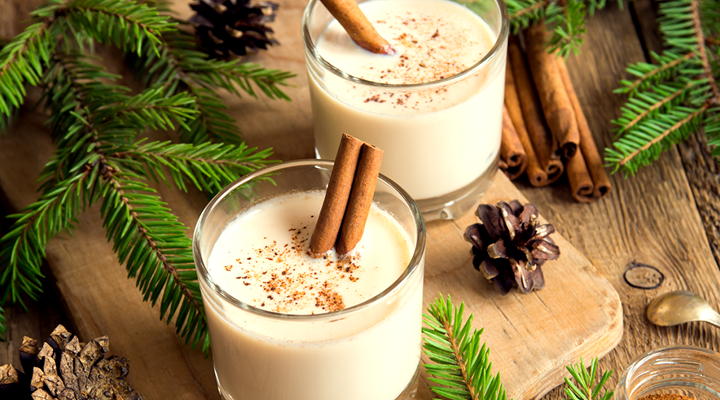The old adage “too much of a good thing” is never truer than during the holiday season. There tends to be an overabundance of everything – especially holiday treats.
While it’s impractical to suggest completely avoiding holiday goodies, it’s important to practice moderation to make sure you don’t compromise your oral health during the holidays!
Holiday treats to limit during the holidays
Not all holiday treats should be treated equally – especially when it comes to the impact they have on your oral health. Below are five common holiday goodies that should be indulged in sparingly during the season.
Candy Canes: The problem with candy canes is that they are made of nearly all sugar and tend to sit in your mouth for long periods of time. This prolonged time means that your teeth aren’t getting a break from the sugar that is dissolving in your mouth.
It’s well known that consuming high amounts of sugar increases your risk for tooth decay and dental caries (cavities). This is because the bacteria that metabolize sugars left on teeth produce acid that wears down your teeth’s enamel.
Additionally, the temptation to chomp candy canes is sometimes too hard to resist. This can lead to cracks or chips in your teeth.
When it comes to candy canes, it’s best to consume them carefully to limit their negative oral health impact.
Christmas cookies: It’s tempting to overindulge in these traditional holiday treats when there’s an abundance of baked goods lying around. However, Christmas cookies tend to be laden with sugar that can do significant damage to your pearly whites.
If you do find yourself enjoying Christmas cookies, the American Dental Association says the best time to do so is right after dinner when saliva production is at its highest. This will help wash away any bits left behind.
Holiday drinks: Festive beverages such as cider, eggnog, and hot cocoa offer more than warm holiday cheer. Eggnog boasts over 20 grams of sugar per cup, and a glass of hot cocoa has nearly 40 grams of sugar—before the whipped cream! Since drinks tend to go down easy, you may not notice you’re consuming dozens of grams of sugar from your beverages.
To mindfully indulge in holiday drinks, stick to one small serving and be sure to wash away some of the sticky sugar residue with a glass of water afterward.
Caramels and other sticky foods: Chewy and sticky holiday treats such as caramels, dried fruits, and sparkly gumdrops are particularly damaging because they are not only high in sugar, but they spend a lot of time stuck to teeth. Foods that stick to teeth are difficult to clear quickly, even with the aid of saliva and water.
If you must indulge in grandma’s famous holiday caramel, be sure to have a glass of water nearby to rinse your mouth once you’re finished. Better yet, pack some floss and take time to clear away leftover pieces.
For tips on how to floss properly, check out “Oral Health Basics: How to properly brush your teeth and floss”.
Fruitcake: Even though it’s the butt of many holiday jokes, some people actually eat the fruitcake that gets passed around at the holidays. Although it may sound like one of the healthier holiday treats, traditional fruitcake is full of sugar, sticky dried fruit, and nuts that can damage your teeth. Know what you’re getting into before you take that first bite.
Tips to enjoy holiday treats with your oral health in mind
Holiday treats can be enjoyed and cause minimal damage to your oral health with a few tips and tricks:
- When you do indulge your holiday sweet tooth, it’s best to enjoy goodies as part of, or immediately following, a meal, rather than snacking on treats throughout the day.
- Stick to one small serving of your favorite drink or snack and follow up by swishing around some water, chewing sugar-free gum, or brushing soon after finishing to wash away some of the sticky sugar residue.
- If you happen to have a holiday treat, remember to brush and floss before going to bed.
- Indulge in other, more tooth-friendly options such as cheeses, crunchy fruits, dark chocolates, and lean meats. These have less sugar, can help clean your teeth as you eat them, and provide key nutrients that keep your teeth strong.

